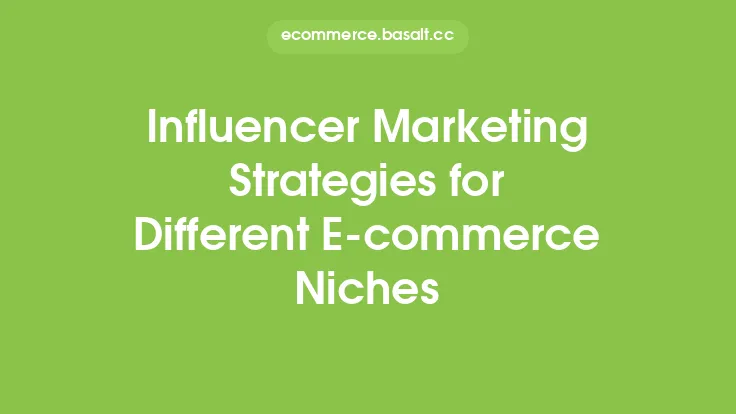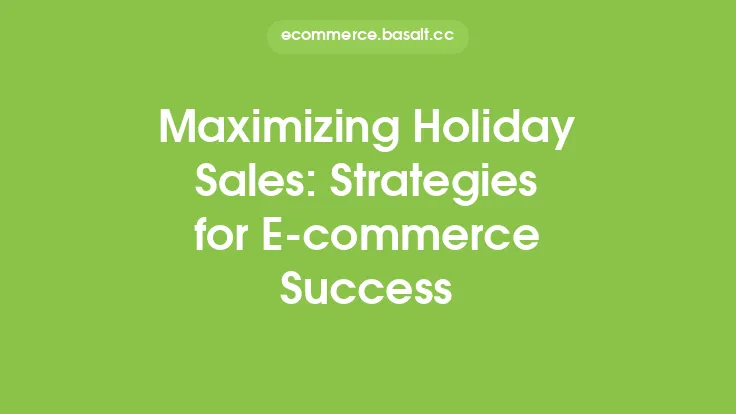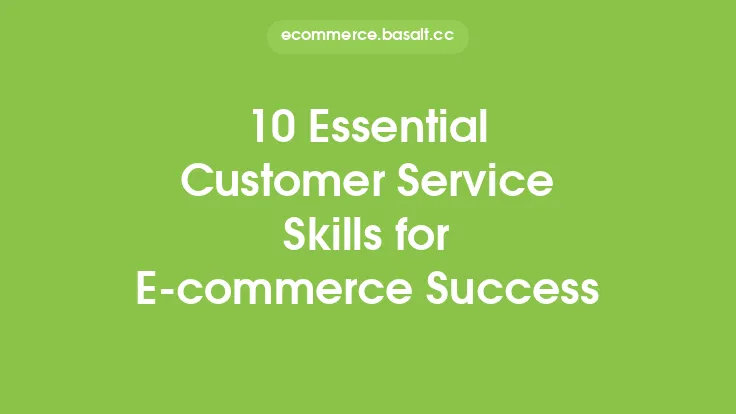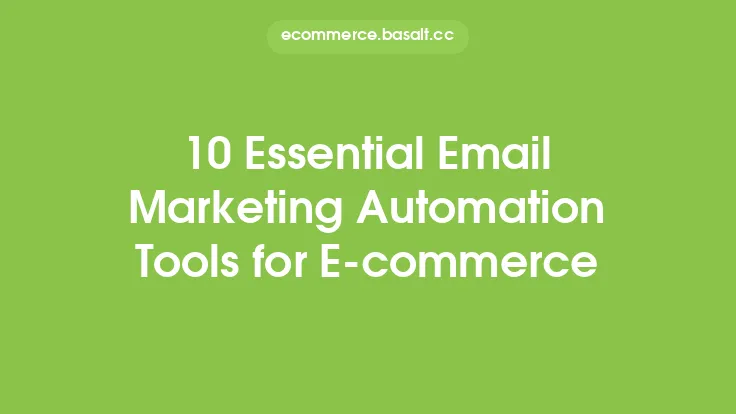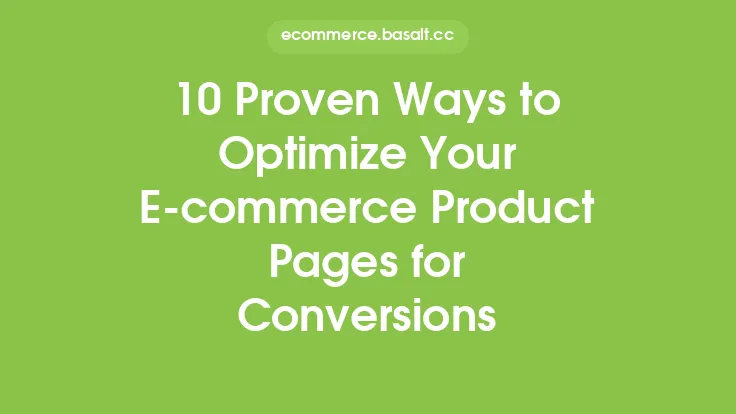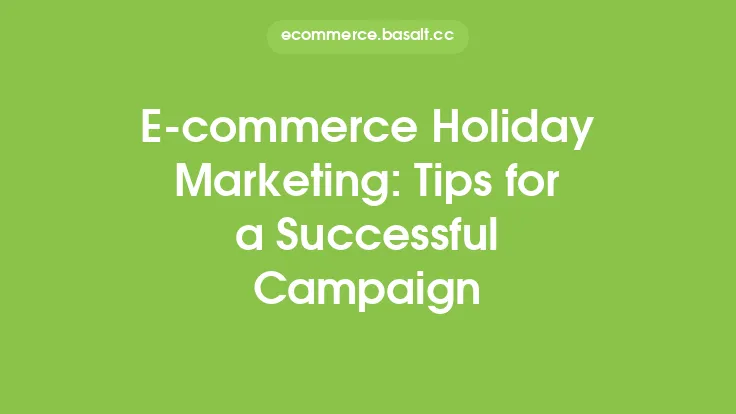In the world of e-commerce, content marketing has become an essential tool for driving sales, building brand awareness, and establishing a loyal customer base. With the ever-increasing competition in the online marketplace, it's crucial for e-commerce businesses to develop a solid content marketing strategy that sets them apart from the rest. In this article, we'll explore the 10 essential content marketing strategies that can help e-commerce businesses achieve success.
Understanding the Importance of Content Marketing
Content marketing is a strategic approach to creating and distributing valuable, relevant, and consistent content to attract and retain a clearly defined audience. In the context of e-commerce, content marketing can take many forms, including blog posts, social media posts, product descriptions, customer reviews, and more. The primary goal of content marketing is to provide value to potential customers, establish trust, and ultimately drive sales. By creating high-quality, engaging content, e-commerce businesses can differentiate themselves from competitors, build brand awareness, and drive long-term growth.
Developing a Content Marketing Strategy
Developing a content marketing strategy is crucial for e-commerce success. This involves identifying the target audience, defining the unique value proposition, and determining the most effective content channels. E-commerce businesses should start by conducting market research to understand their target audience's needs, preferences, and behaviors. This information can be used to create buyer personas, which will guide the content creation process. Next, e-commerce businesses should define their unique value proposition, which will help differentiate them from competitors. Finally, they should determine the most effective content channels, such as social media, blog posts, or email marketing, to reach their target audience.
Creating High-Quality, Engaging Content
Creating high-quality, engaging content is critical for e-commerce success. This involves developing a content calendar, creating a content style guide, and investing in high-quality content creation tools. E-commerce businesses should start by developing a content calendar, which will help them plan and organize their content in advance. This calendar should include a mix of promotional, educational, and entertaining content to keep the audience engaged. Next, they should create a content style guide, which will ensure consistency in tone, voice, and style across all content channels. Finally, they should invest in high-quality content creation tools, such as cameras, lighting, and editing software, to produce professional-looking content.
Leveraging User-Generated Content
User-generated content (UGC) is a powerful tool for e-commerce businesses. UGC refers to any content created by customers, such as product reviews, ratings, and social media posts. E-commerce businesses can leverage UGC by encouraging customers to share their experiences with their products or services. This can be done by offering incentives, such as discounts or free products, in exchange for reviews or social media posts. UGC can help build trust, increase conversions, and reduce the risk of purchasing. E-commerce businesses can also use UGC to create social proof, which can help influence purchasing decisions.
Utilizing Influencer Marketing
Influencer marketing is a popular content marketing strategy for e-commerce businesses. Influencer marketing involves partnering with influencers, who have a large following on social media, to promote products or services. E-commerce businesses can utilize influencer marketing by identifying influencers who align with their brand values and target audience. They can then partner with these influencers to create sponsored content, product reviews, or tutorials. Influencer marketing can help increase brand awareness, drive traffic, and boost sales. However, e-commerce businesses should ensure that they partner with influencers who have a genuine interest in their products or services.
Optimizing Content for SEO
Optimizing content for search engine optimization (SEO) is critical for e-commerce success. SEO involves optimizing content to rank higher in search engine results pages (SERPs) for specific keywords. E-commerce businesses can optimize their content for SEO by conducting keyword research, using header tags, and optimizing meta descriptions. They should also ensure that their content is mobile-friendly, has a fast loading speed, and is free of technical errors. By optimizing their content for SEO, e-commerce businesses can increase their online visibility, drive organic traffic, and boost sales.
Utilizing Email Marketing
Email marketing is a powerful content marketing strategy for e-commerce businesses. Email marketing involves sending targeted and personalized messages to customers or potential customers via email. E-commerce businesses can utilize email marketing by creating email lists, crafting compelling subject lines, and optimizing email content. They can also use email marketing automation tools to personalize and optimize their email campaigns. Email marketing can help increase conversions, drive sales, and build customer loyalty. However, e-commerce businesses should ensure that they comply with anti-spam laws and regulations.
Creating Interactive Content
Creating interactive content is a great way to engage with customers and increase conversions. Interactive content refers to any content that requires audience participation, such as quizzes, polls, and contests. E-commerce businesses can create interactive content by using tools like survey software, quiz builders, and contest platforms. They can also use social media to create interactive content, such as Facebook Live or Instagram Stories. Interactive content can help increase engagement, drive traffic, and boost sales. However, e-commerce businesses should ensure that their interactive content is relevant, valuable, and consistent with their brand values.
Measuring and Analyzing Performance
Measuring and analyzing performance is critical for e-commerce success. E-commerce businesses can measure and analyze their content marketing performance by using metrics like website traffic, engagement, conversions, and return on investment (ROI). They can also use analytics tools like Google Analytics to track their website traffic, behavior, and conversion rates. By measuring and analyzing their performance, e-commerce businesses can identify areas for improvement, optimize their content marketing strategy, and increase their ROI.
Staying Up-to-Date with Industry Trends
Staying up-to-date with industry trends is essential for e-commerce success. E-commerce businesses can stay up-to-date with industry trends by attending conferences, reading industry blogs, and following industry leaders on social media. They can also use tools like Google Trends and social media listening to stay informed about the latest trends and topics. By staying up-to-date with industry trends, e-commerce businesses can stay ahead of the competition, identify new opportunities, and optimize their content marketing strategy.
